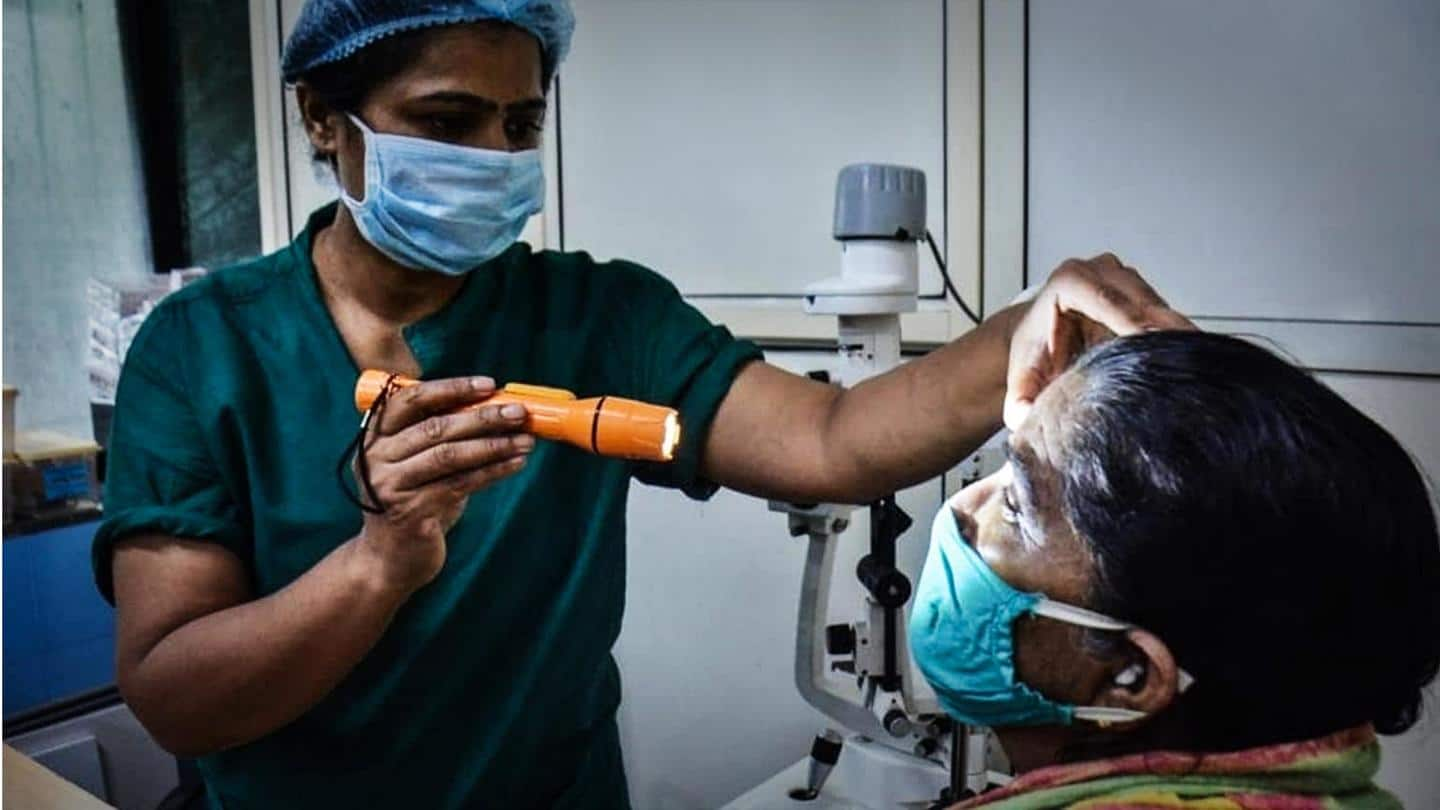
Delhi: Black fungus case in dengue-recovered patient raises worry
What's the story
A rare case of black fungus or mucormycosis has been detected in a 49-year-old patient in Delhi's Indraprastha Apollo hospital who had just recovered from dengue. The patient has been identified as one Mohammad Talib, a resident of Greater Noida, Uttar Pradesh. Talib had come to the hospital complaining of vision loss 15 days post dengue recovery.
Context
Why does it matter?
The latest case has sparked concerns about dengue patients being vulnerable to mucormycosis as the disease is taking hold in India. Delhi alone recorded 5,270 cases this season. Mucormycosis had become an added woe during India's second wave of COVID-19. Patients with compromised immunities or other diseases such as diabetes were more vulnerable to the fungal infection.
Disease
Dengue infection takes toll on immunity
Dengue fever is a vector-borne disease caused by four different viruses. While the illness can be range from mild to moderate, it can leave a lasting impact on a patient's body by impacting their immune system. Its symptoms include high fever; fatigue; muscle, bone, and joint pain; rashes; headache; vomiting; and nausea. Severe cases require hospitalization, however, there is no specific treatment.
Experts
Weakened immunity may cause mucormycosis
Doctors at Apollo suggest Talib's case resulted from dengue-induced weakened immunity. Even with treatment, "patients of mucormycosis can lose their eyesight permanently," Dr. Atul Ahuja, senior consultant ENT and Head and Neck Surgery at Apollo, told ANI. In an aggressive infection, removal of the eye may become necessary to prevent further infection, he added.
Fungal infection
What is mucormycosis?
Mucormycosis or black fungus is a relatively rare disease caused by a group of fungus called mucor. It is found in soil, air, and the nose and mucus of humans. The fungus rapidly spreads to "the healthy tissues of the nose, sinuses, eyes, and brain" and delay in diagnosis may cause "adverse long-term complications," Dr. Suresh Singh Naruka of Apollo hospital said.
Information
How can one prevent mucormycosis?
Mucormycosis is extremely rare in dengue patients. Doctors suggest patients with recent dengue history must stay vigilant. However, it is not contagious. A safe, fungus and spore-free environment can minimize the risk. Regular boosting of immunity can also prevent infection.